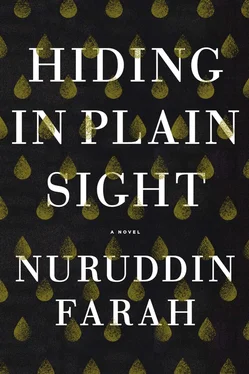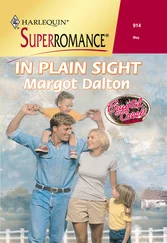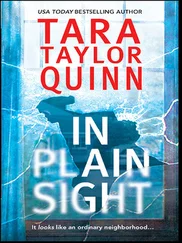Bella brings in the bags of groceries she has bought but leaves the carryall containing Aar’s personal effects in the trunk of the car when she parks. Before bringing them in, she wants to know what the state of affairs is here.
She remembers she has no key and rings the bell at the same time as she knocks hard with her knuckles on the solid wooden door. But there is no answer. A worried second later, she thinks she should have called from the shopping mall to alert them when to expect her. Then her instinct leads her to lean heavily on the door and turn the handle in an instant of optimism. And the door opens. Now all sorts of worries invade her mind: Have they forgotten to lock it in the first place? Have burglars broken the door or somehow found their way in? And given that there is no one downstairs, she allows other fears to prey on her thinking until she hears the soft whirring of the fan of a computer coming from upstairs and then an instant later a faint human humming, most likely Dahaba singing along with one of her favorite tunes.
Laden with the shopping, she closes the door gently, not wanting to frighten Dahaba. In the kitchen, her gaze falls on a heap of dishes, saucepans, and utensils piled up in the sink, still waiting to be washed. Evidently neither Valerie nor Padmini helped clean up the breakfast mess before leaving — unless they are still upstairs with Dahaba or Salif. Bella’s mind now retrieves a memory pertinent to the occasion: Aar saying he had three children to look after.
She opens the fridge, in which there are half-eaten packets of sweets and a couple of cans of half-drunk soft drinks. Another empty can is abandoned on the windowsill. She puts away the groceries, pours herself a glass of water, and sits at the kitchen table, which is equally messy. After a couple of sips, she gets up and empties the fridge of the abandoned items, wipes the surface of the kitchen table, and discards the empty can. Then she sits back down, feeling instantly less exhausted. She calls out to Salif and Dahaba, and when they welcome her back, she suggests they come down and help her prepare a light midday meal.
As Bella seasons the chicken she has brought, Dahaba is the first to speak as she shows off a silver bracelet her mum bought for her. “Isn’t this the most gorgeous thing you’ve ever seen, made, of all places, in Mogadiscio?”
“Made in Mogadiscio?” questions Bella.
Dahaba assures her that the Indian jeweler who sold it to them swore it was handmade in Tangaani, an arts-and-crafts place in Mogadiscio. Excited, Dahaba jumps around in joy.
Bella corrects the place name. “ Shangaani in Mogadiscio.”
Because Salif remains silent, Bella asks, “And you?”
He sounds dismissive of the whole exercise, and then, when least expected, he says, “Same boring stuff, as always. You are unhappy, you are bored, Mum buys you a present. You see, I didn’t want to ask her, or either of them for that matter, questions about their life, but I hoped they would bring me into their life, what it is like to be where they are, what makes the two of them tick. What do you get? Presents. A new iPhone, if you want.”
Bella can’t think of what to say so she doesn’t even try to reason with him, maybe because he has a point, his point, the point of a teenager who meets his mum and who wants to be no longer thought of as a child.
“And he was rude to Mum,” Dahaba says.
Bella asks, “Rude? Why rude? How rude?”
“She gave him cash,” Dahaba says, “since Salif wouldn’t accept a present from her. And he threw the money back at her, in full view of everyone.”
“Then what happened?”
“We left and took a taxi home.”
Bella feels powerless to do anything about what happened and she is at a loss for words. And of course, she understands that Salif was hurt and had the right to feel that way. She senses the best thing to do is to leave things the way they are and revisit them another time. And with no one speaking, Bella deliberately lets the subdued manner dominate, convinced that something of monumental significance has occurred during her absence.
Dahaba says, “It was just terrible.”
Salif, surprising Bella, comes to the rescue. He goes over to where Dahaba is standing and he hugs her to him and he says, “Nothing to worry about. I told her she is welcome to visit whenever she pleases, didn’t I?”
“That was sweet of you,” says Dahaba.
“See. Nothing to worry about.”
A phrase from Samuel Beckett, “a stain on silence,” springs to Bella’s mind as she thinks how best to move on.
Salif again comes to the rescue. He is adept at changing the thrust of a conversation, helping to veer it away from controversy. He says, “Let’s help put the groceries in the fridge and then let’s prepare a light lunch.”
While he puts the shopping in the fridge, Bella, happy to do so, chops onions and puts them to brown in a frying pan then begins slicing mushrooms. Something tells her that there is something else brewing — and that Salif is not the culprit, the author of whatever devilry they’re not telling her about. He is staring at his fingernails, grinning in triumphant mischief, and Dahaba, nervous and dying to say something or revisit a scene, bites hers to the quick. Salif and Dahaba are looking away from each other in a bid to avoid eye contact. Bella will give them a few minutes, and if neither tells her something, only then will she ask. She pretends that everything is okay and stirs the mushrooms and onions, then adds spinach to the pan. She turns the chicken over, poking it with a fork. She washes the salad thoroughly, making sure there is no sand in it.
To keep Salif busy, Bella asks him to please make the dressing and, to this end, hands him half a lemon, some mustard, balsamic vinegar, and oil. He gets down to business, enlisting Dahaba to crush some garlic and find the pepper grinder. They all fall silent, but Dahaba can’t seem to relax; she seems to need to say more about last night. “How dare they do it here, in our house?” she bursts out.
Bella says to Dahaba, “What is it? Tell me.”
But Dahaba won’t speak, it seems, until she receives the go-ahead from Salif. Bella plays the waiting game. Finally Salif gives his sister the signal, subtly indicating that she can go for it.
“I came upon them doing it,” Dahaba says.
Bella acts as if she doesn’t follow.
Unbidden, Dahaba continues, “The door ajar, their noise breathy, you know, and their bodies shapeless. Does that make sense to you?”
“Why did you come downstairs last night?” asks Bella.
“I was hungry,” Dahaba says.
“Did you find something you could eat?”
“I couldn’t bear the thought of eating anything after seeing them.”
“You are not making sense.”
“I was no longer hungry; I was angry and returned to my room.”
“I can’t make sense of what you are telling me.”
There is no look sadder than the look of innocence in ruins, Bella thinks, as Dahaba sits apart, sadly remembering the scene involving her mother last night.
Then Salif says to Bella, “Then she came to wake me.”
Abandoning the making of the dressing, he joins Dahaba where she is because he can’t bear the thought of his sister being so sad; in this moment, he is in a protective mood, and he caresses Dahaba’s hand reassuringly, as if saying to her that all will be well. They are in a world of their own, a world to which Bella has no access. This is the chasm in her knowledge about them, the gap in her understanding of them — the cause of her anxiety, her exhaustion.
“Did you go down to see for yourself?” asks Bella.
“Of course not,” Salif says.
“He didn’t have to,” says Dahaba.
Читать дальше












